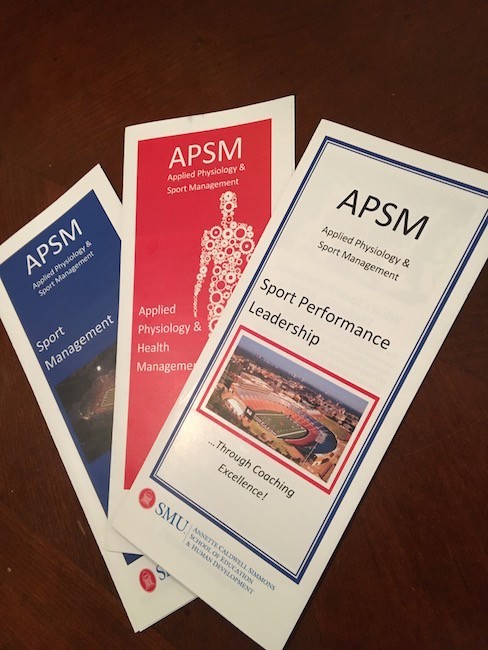By Klara Bradshaw
Have you ever wanted to coach or direct a sports team?
Now’s your chance to learn everything it takes to become a successful coach.
In the Fall of 2015, the Applied Physiology program in the Simmon’s School of Education opened a third option for students within its program, a track allowing students to learn about the qualities a leader in sports needs.
“I believe a lot of people have been wishing for this for a while,” SMU student and APSM major Michael King said.
The new track, named Applied Physiology and Sports Performance Leadership, allows students to pursue a more specific route in coaching or roles dealing with leadership responsibilities.

Its curriculum includes courses like Coaching and Leadership Performance, Communication Skills Training and Psychology of Sport, all these teach students what it takes to lead a sports team.
“We’re really trying to get into what does a good coach need, and I think that’s where we’re unique,” Department Chair and Director of Applied Physiology and Enterprise Dr. Lynn Jacobs said.
The new courses were specifically designed with the mindset to offer something completely unlike what has been offered before.
“We wanted to be different and to suit what I felt like we had to offer and what would be meaningful to their careers,” Director of Sports Performance Leadership David Bertrand said. “This is not just X’s and O’s, this is a people service.”
Until now, the Applied Physiology program offered only two concentrations: Applied Physiology and Health Management (APHM) and Applied Physiology and Sports Management (APSM).
In the Health Management concentration, the focus is more on the applied sciences like biomechanics and exercise physiology, which prepares students for jobs in the health, medical, and fitness fields.
The Sports Management concentration is focused on the “business” of sports. It prepares students for careers in sports marketing, the management of sports teams and sports public relations.
The Applied Physiology program lacked a concentration that dealt with athletes on the sidelines in ways other than training and medical practices.
“We didn’t have anything like, you love athletics and you think you could be a great coach, we didn’t really have anything that just focused on that,” Dr. Jacobs said.
The first classes were introduced in Fall 2015, and the concentration has already graduated four students. The program’s popularity is gaining ground.
According to Jacobs, an estimated 60 students are enrolled in this semester’s Coaching and Leadership for Performance course, with the expectation that it will only continue to grow with time.
Students also believe the creation of Sports Performance Leadership is a step in the right direction.
“I believe this concentration is very beneficial,” King said. “This will have a positive impact on the Applied Physiology major.”











